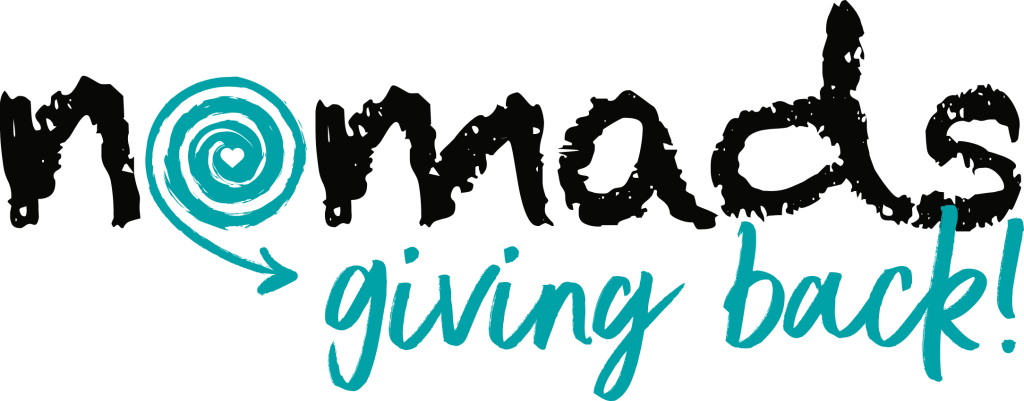Upon the release of Tim Ferriss’ The Four-Hour Workweek, Google searches for “remote jobs” and “digital nomad” skyrocketed. The idea of buying one-way tickets to anywhere with wi-fi and having a “work-from-anywhere” job that allows traveling full-time is a dream come true for many.
I remember when I first picked up the book in 2018, one month before graduating from uni. I put it down after reading the first 50 pages. While I loved the ideas presented in the book and I am a big fan of Tim Ferris, I didn’t feel ready for such adventures. I wanted a taste of the regular 9-5 office life.
Over the last decade, the traditional concept of remote working in the home office switched into working from the beach bar type. Then, online entrepreneurs and freelancers took their jobs on the road while posting about it on blogs and social media. What started as a small trend became a full-blown craze for the digital nomad life.
My first foray to being a digital nomad happened when I traveled to Uluru, Central Australia last year in May. I worked in the morning and late-nights while exploring the wonders of the Red Centre during the day. By seeing it in practice, I absolutely loved the idea of a location independent lifestyle, enabled by technology, allowing me to travel and work remotely, anywhere in the world.
I was still working full time in Melbourne at that moment, but to get better at working remotely, I took many short trips within Australia, finding the right balance between work and play.
In September last year, I spent 5 weeks in New Zealand, working and traveling. I was working remotely part-time which gave me more time to explore new cities. Then I went to Russia in December, followed by Dubai and then Bangkok in January.

Working in Taupo, NZ 
Working in Bangkok
And then coronavirus hit. And now, most of the world’s population is working from home(remote) and is expected to do so till the end of 2020, with many firms thinking permanent shift towards home working.
One key distinction here is that remote workers are not all digital nomads. A remote worker’s lifestyle focuses much more on the work than on the location. The major commonality between the two is that neither has to show up to a specified physical office to work. Their setup, however, differs greatly.
Now, as more and more people to switch to remote work, more people would like to try the digital nomad life. Even though global travel is on pause right now, it will resume eventually( I hope soon) . The flexibility that remote work affords gives increased opportunity for travel.
Need for social change
Now, let’s shift gears and talk about social impact. We all know there are countless problems in the world. Climate change, poverty, inequality, wars/conflicts, water scarcity – to name a few.
COVID-19 has presented the world with a new look at how individuals or certain groups are exposed to health crises, food shortages, job insecurity, and more. It is becoming increasingly clear outside the social enterprise sector that social impact entrepreneurs and companies are needed in this space.
The need to give back is at its peak and the demand for social change could not be higher. In the coming years, more people will be on the road than ever (not tourists, but nomads), and there definitely will be no shortage of people that need help.
The past few years have also seen the rise of impact travel / responsible tourism. It’s important than ever to not just consume from capitalistic multinational businesses but give back to local communities and small businesses, travel sustainably, and be kind of the road.
As an outsider, it might seem that expats/digital nomads/long-term travelers, just take from the communities they temporarily reside in. But it can be challenging to give back to individuals or organizations when your lifestyle is so fast-paced. With surroundings that are always changing, it may not always seem plausible to get involved in a certain local non-profit or to find work with a charity.
Personally, as someone who lived abroad for 5 years and a new digital nomad, I’ve felt the lack of resources and a structured way for me to get involved and contribute to my local communities.
Nomads Giving Back
Enter, Nomads Giving Back. a social enterprise with the vision to inspire nomads, expats, and travelers to give back to the communities they call ‘home away from home.’
NGB makes it easier for you to give back to local communities and create positive social change around the world through social impact-themed trips, culture & language exchanges, skill-sharing programs, advocacy events, meet-ups, impact workshops, volunteering access to organizations they support and more.

I’ve been following them for the last few months and joined them as an Ambassador last week. We’re a group of socially-conscious people working to make a positive social impact around the world, and who love to travel as well.
NGB has been active even during the global lockdown with a range of online events, creating a support forum for nomads affected by coronavirus and continuing to support purposeful organizations. I’m super excited to join this global tribe of change-makers and be a voice for positive social change.
“Never doubt that a small group of thoughtful, committed citizens can change the world; indeed, it’s the only thing that ever has.”
Margaret Mead
Keen to know more? Check out our website or join the global facebook group here.
Or get in touch with me to chat about social impact and remote work.
Watch this space for more!


